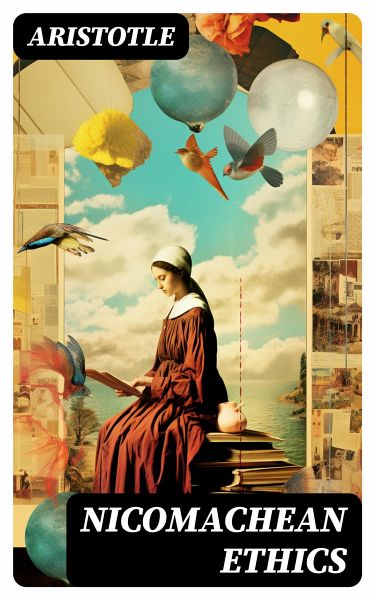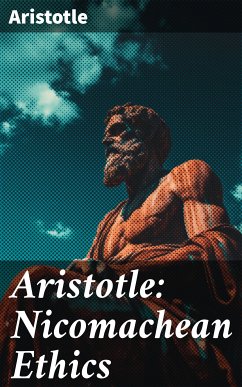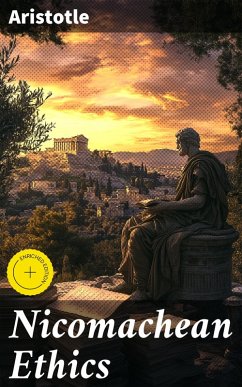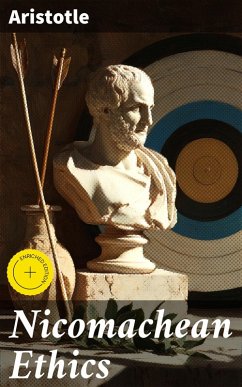
Nicomachean Ethics (eBook, ePUB)
Complete Edition
Übersetzer: Chase, D. P.

PAYBACK Punkte
0 °P sammeln!
Aristotle's "Nicomachean Ethics" stands as a foundational text in Western ethical philosophy, providing a systematic inquiry into the nature of the good life and moral virtue. Written in a clear, systematic style, Aristotle explores concepts such as happiness (eudaimonia), moral virtue, and the importance of friendship, weaving together empirical observations with profound philosophical reasoning. Set in the context of Ancient Greece, this work reflects the rich intellectual tradition of the time, engaging with Socratic ideas while proposing a unique virtue ethics framework, emphasizing the cu...
Aristotle's "Nicomachean Ethics" stands as a foundational text in Western ethical philosophy, providing a systematic inquiry into the nature of the good life and moral virtue. Written in a clear, systematic style, Aristotle explores concepts such as happiness (eudaimonia), moral virtue, and the importance of friendship, weaving together empirical observations with profound philosophical reasoning. Set in the context of Ancient Greece, this work reflects the rich intellectual tradition of the time, engaging with Socratic ideas while proposing a unique virtue ethics framework, emphasizing the cultivation of character over mere adherence to rules. Aristotle, a student of Plato and tutor to Alexander the Great, draws on his extensive empirical studies and philosophical debates, offering insights shaped by a lifetime of inquiry into human behavior and the natural world. His experiences within the Athenian philosophical community and his practical concerns about the nature of human happiness informed his exploration of ethics as a practical pursuit, one intimately connected to human flourishing. This essential text is highly recommended for readers seeking to deepen their understanding of moral philosophy. "Nicomachean Ethics" is not only a cornerstone of ethical thought but also offers timeless wisdom applicable to contemporary life. It invites readers to reflect on their own values and the virtues necessary for a fulfilling existence.
Dieser Download kann aus rechtlichen Gründen nur mit Rechnungsadresse in A, B, BG, CY, CZ, D, DK, EW, E, FIN, F, GR, H, IRL, I, LT, L, LR, M, NL, PL, P, R, S, SLO, SK ausgeliefert werden.













